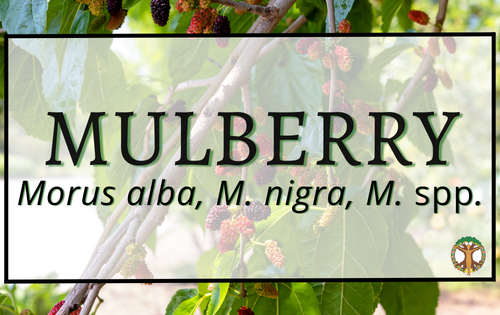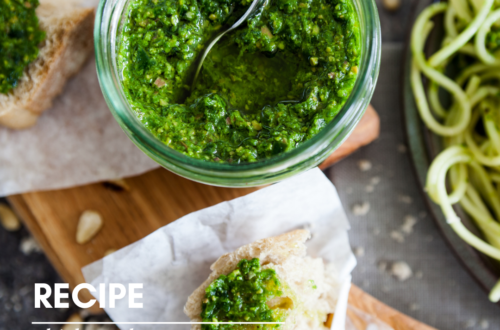A Fiery Conversation
On Saturday January 25, I taught my Roots of Herbalism students the health virtues of cayenne, garlic, and ginger as part of the Materia Medica section for their weekend class.
My long-time favorite combination of this “holy trinity” of healing herbs is Fire Cider, a delicious remedy steeped in apple cider vinegar with variations of other warming, spicy allies like turmeric, horseradish, or onion. It moves energy into and pathogens out of the body, boasting reliable results in preventing illness and shortening the duration of infection and congestion. This preparation of these strong-personality herbs is ideal, because they can often be aggressively strong to taste raw when I’m feeling down and out, and preparations with alcohol aren’t my ideal fix for the frequent doses that may be needed to fend off the cooties.
I learned the Fire Cider recipe over a decade ago from my sweet mentor, Rosemary Gladstar of Sage Mountain Herbal Center in Vermont. Last summer, I was blessed to be part of a film project with Rosemary, where John Gallagher of LearningHerbs.com captured her teaching how to make thirty of her famous herbal formulas, including – of course – Fire Cider. Check out the video above to learn how to make this potent home remedy directly from Rosemary’s decades of experience preparing it.
You can imagine my surprise when I came home from class Saturday night to a handful of phone calls from herbalist friends on both coasts of the continent, clenching their jaws at a controversy in the herbal world. A Massachusetts company called Shire City Herbals filed for a trademark of the name “Fire Cider” last year, and, with registration in hand, recently approached Etsy.com to ask that the trademark be enforced by removing the listings of several Fire Ciders sold by various herbalists, including herb friend Lauren Murphy from La La Earth VT. Etsy also removed the listings of Sue’s Fire Cider over at The Withered Herb, along with probably a dozen others. Sue’s account of the experience offers a balanced summary of events, especially the concept of ownership of language.
The herbal community has quite literally been abuzz since social media has spread the news like wildfire. Mary Blue from Farmacy Herbs first caught my attention, and led me to Ryn’s comprehensive and well-researched article on the matter. A great many impassioned posts, comments, and forwards have commenced since then – the most thoughtful and eloquent of which I’ve referenced in this post.
I’m grateful to Shire City Herbals for poking this proverbial hornet’s nest, because at this moment, Fire Cider is probably on every herbalist’s blog, Facebook, Instagram, Twitter, Pinterest, and all those other social media methods I am too outdated to even know exist. This snowstorm of media means that right now, during the depths of winter, we are all receiving a really good reminder of the value of one our most treasured winter remedies. With each post we unleash into the world wide web, not only will our herbfriends be reminded of this invaluable tonic, too, but our students~ followers~ customers~ clients~ friends who may not have ever heard of Fire Cider are now on the receiving end of a passionate introduction. World Fire Cider Day is now being organized, and in a few weeks, we’ll all be making tonic and sharing with friends – a pretty darn cool side effect of this controversy.
In fact – a confession – I’ve had photos of my own homemade Fire Cider patiently waiting for many weeks for me to finally write a blog post about this time honored recipe, intended to be my first article on our brand-spanking-new-website. So thank you, Shire City Herbals: I knew my first blog post would be about Fire Cider (featuring Ginger, Turmeric, Onion, and Cayenne from my backyard garden; and Garlic and Apple Cider Vinegar from Heartsong Farms), but I apparently needed the nudge to get it up here, and certainly never could have guessed it would be happening quite like this!
Like Traci Picard of Fellow Workers Farm, whose eloquent article on the subject can be found here, I’m grateful to Shire City Herbals for spawning this show of strength and prowess within the herbal community. As Traci puts it, “how do we know what we stand for until it is threatened? ….This issue is asking a lot of questions of us and that questioning can propel us forward into the reality of 2014, into the reality of what we value and where we will choose to go next. The conversations this is starting are very important and would not be happening without the trademark issue.” Indeed.
As you can expect, I am grateful because the Shire City controversy demands we examine our legal system, and especially its flaws. Beyond the question of whether or not Shire City was ethical or justified to apply for this trademark, is the question of why the government approved it. A cursory Google search lists hundreds of blogs and websites posting the recipe to this formula and attributing Rosemary’s books and teachings. This simple search also links me to throes of companies producing the product themselves, and I’m guessing these herbalists did not all open up shop yesterday. That the government did not find previous history of common usage, or evidence of current commercial distribution – two conditions I understand to be of paramount importance in trademark approval – is laughable.
As is often the case in times like these, we are reminded that “we the people” must continue to hold our government accountable and with great intention keep ourselves informed of the decisions they make that affect our daily lives. The moment we take for granted these mechanisms, our freedom to create the remedies our ancestors taught us and share them freely with our community is interrupted – as we’ve seen this week with Etsy’s removal of all other Fire Ciders. It’s up to us keep watch with mindful awareness for other opportunities to preserve our historical freedom and birthright to source our health from the Eden that surrounds us.
I am also grateful because thanks to Shire City’s efforts to distribute their product, including hundreds of store accounts and 250,000 samples they’ve distributed at events, thousands of people have been introduced to this remedy. I’m equally grateful to the hundreds of herbalists who, like me, teach herbal remedies to small groups week in and week out. I taught fifteen students about Fire Cider in class on Saturday; twenty others sampled it in my Herbs for Winter Health Workshop in December; and another twenty made it together during my class on Immune Herbs for Back to School Health last fall at our local health food store. By no means did I reach a quarter million people last year, but in order to create a sustained and sustainable community of health, we each roll up our sleeves and meet one person at a time with a smile, an open heart, and a recipe or two.
Plus, quality trumps quantity, so while Shire City herbals may have me beat on quick-and-fast herbal high fives, I’m deeply touched by the number of individuals I’ve been blessed to share herbs with on an intimate level in classes and consultations, in the last year alone for that matter. And if you were to add the numbers I’ve educated personally, with the number who have worked with just my closest herbal colleagues, not to mention all the herbalists I greet at herbal conferences, or who are also members of guilds and organizations in our herbal field, or who cross post on the same herbal forums, and … well Shire City, let’s just say, we’re catching up pretty quick… This point is specifically in response to their company’s initial response to concerns from herbalists, including Rosemary herself. Their presumption that they are the only company in the country educating the “general public” about Fire Cider, or helping people who know nothing about plants find health through herbs, is entirely misinformed.
The crux of the issue, for me, are the invaluable practices of honoring our elders, and sharing freely what we know – both which really define traditional herbalism, and the roots from which Shire City’s formula comes. As Rosemary exemplifies in the video above:
“I’ve been making this every year for probably 20 or 25 years, maybe even longer, and quite honestly I don’t even know where I got the receipe or who taught me how to do it. It’s always fun to remember to pass the teachers along, but I’ve been making it for so long, I think it’s got my own little stamp of “Rosemary’s formula” on it now … and as you learn to make it and you start making it and you add your own little things, it will be your formula – that’s what so fun about herbal products.”
Shire City: Kudos for being herbal missionaries and for the good intentions I know in my heart you bring to your work. I’ve never had your Fire Cider, but I bet it tastes pretty darn good. I also bet you’ll sell a million gallons worth … and at the same time Lauren, Katheryn, Amy, Tamara, Lauren and hundreds of other herbalists will sell their Fire Cider to their communities … and at the same time thousands more of us will make our own batches at home … and all this abundance can be IS possible without taking away the right of others to do their good herbal work in the world alongside you.
In short: Let’s honor the traditions your recipe is rooted in, by honoring the elders who pass these traditions to us. For the sake of the herbal tradition, please keep the name Fire Cider in the public domain where it has always belonged, thanks to the generous teachings of our elders.
You can read Rosemary’s eloquent and wise-as-always response to the situation at this link. Rosemary’s own Fire Cider recipe has been featured in many of her original class handbooks such as her home study course. Her Fire Cider formula can also be found in her classic book “Herbal Recipes for Vibrant Health” – our favorite lifelong herbal remedy manual. Mountain Rose Herbs, one of our favorite sources for sustainably harvested herbs, also has a great post on making Fire Cider here.
PS: thank you sweet Rosemary, for sharing this beautiful recipe with all of us over the last three decades, and for inspiring a community of strong, fiery herbalists who are deeply touched by your years of work, and now pay our respect to your teachings by responding en masse to this situation. We honor you, we support you, and we bless you!
UPDATE AUGUST 31 2015: Since this post, the herbal world has lit up in response to the trademarking of the name of this traditional recipe. Dozens of herbal businesses have been asked to change the name of their products, even those who have sold Fire Cider long before Shire City even existed. A coalition formed in response to this situation, which you can learn more about at http://freefirecider.com/. Over 150 herbal businesses, including this school, have sent their support to this coalition. A formal legal proceeding has been entered to the US Patent and Trademark Office to dispute this trademark, after which Shire City sued two of the leaders of the grassroots Traditions not Trademark movement, and a third herbalist who had already changed her product name from “Fire Cider” to “Fire Tonic.” The lawsuit against these three herbalists has shocked the herbal community and freedom activists at large, as a surprising response to free speech efforts. Please visit freefirecider.com to stay up to date on the latest in this unfolding situation, and make your own Fire Cider at home to continue preserving this time honored tradition. Free Fire Cider!
UPDATE MARCH 20 2019: Since the last update, much has transpired in the effort to maintain sovereignty and integrity of generic herbal terms like Fire Cider. The Shire City lawsuit referenced above will finally see its day in federal court on March 25, nearly five years later. I’ve spoken with numerous friends beyond the defendants who will be flying to Massachusetts to testify on behalf of the our right as citizens to practice free traditional healthcare without restraint, and it is astonishing to me what a wide and heartful community effort has come together in the name of tradition. Not to mention the many families, farms, apothecaries, clinical practices, schools and spring gardens that are being interrupted by this trial so that a simple name – which, in a way, symbolizes our collective birthright – will remain protected. If you have been inspired by the dedication of the herbalist community holding ground for our rights, and especially if you’ve benefited from Rosemary Gladstar’s sharing of the recipe over the last thirty years, I encourage you to make a humble but meaningful donation to the Free Fire Cider legal fund.
Sadly, the greedy goal to grasp control over seed, soil and soul continues, and more traditional terms such as “Four Thieves” and “Thieves” oil get gobbled up in the trademark registration rat race – this example, by a company with a long reputation of dubious integrity, Young Living (see here and here addressing adulteration and exaggerated if not downright harmful medical claims, not to mention their federal indictment for disregarding a threatened species in their commercial oil production). When heritage remedies with well-documented generational use can be subject to trademarking so easily, what headling do we expect next? Whole Foods/Amazon acquire Elderberry Syrup©? Florida now requires registration permits for pickin’ mulberries from our own backyards? FDA rules Roselle Jam can’t be sold at farmer’s market without chromatographic certificate of analysis? The trademarking of traditional terms like Fire Cider and Four Thieves just feels precariously close to a slippery slope that I’d rather not imagine.
So it’s time to get fired up, herbalists. As stated in the New York Times this week, the issue of corporate control over traditional remedies – even in name only – has far reaching implications. Thank you Rosemary Gladstar, Nicole Telkes, Mary Blue, and Katheryn Langelier for your dedication, perseverance, and generosity in standing on the front lines. They’re leading the way, and it’s time for us to follow suit.
Take Action:
Free Fire Cider
National Health Freedom Coalition
Learn More:
MOTHER EARTH NEWS December 2015
NEW YORK TIMES March 2019
Emily Ruff is Director of the Florida School of Holistic Living.





4 Comments
Carol Cox
Excellent blog post, Emily. I’ve been reading a really good book called “Sacred Economics” (http://www.amazon.com/Sacred-Economics-Money-Society-Transition-ebook/dp/B004ZZNNKU/). In the book, the author talks about how we (society) have placed a monetary value (and thus ownership) on so many things that used to be freely available and shared, including art, stories, and ideas. Sounds like this trademark of a common term is yet another example. It’s unfortunate that the patent office allows this to happen (I would say, they actually encourage it). So, thank you for writing so eloquently and graciously on this issue and for focusing on the good.
Peg Campbell
Oh, I love the post, too Emily and yes, Carol, thank you for saying exactly what I would say! Charles Eisentein, author of Sacred Economics rocks!
Pingback:
Peg Campbell
Also, I have not known about this name somehow, but instead Master Tonic or Super Tonic. Hey! Maybe you or I should trademark those names???? NOT! 😀